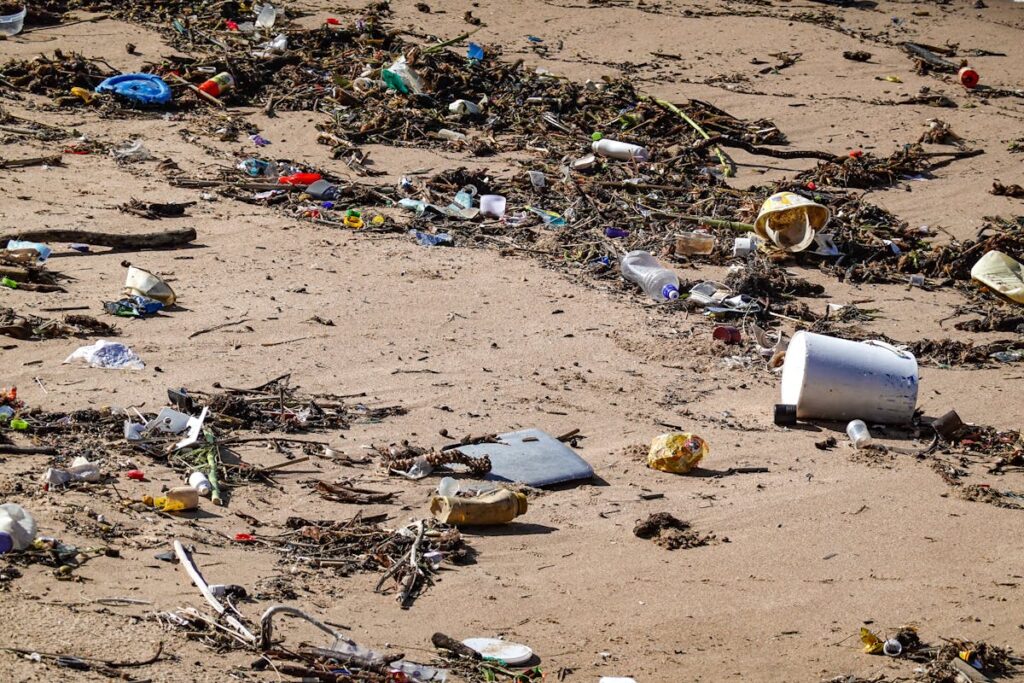
We live in a time of abundance, or so we’re told. Never in human history have so many goods been so widely available, so cheaply produced, and so quickly discarded.
But buried underneath the glossy surface of this apparent prosperity is a quiet rot. Not just environmental degradation, though that alone should stop us cold, but a more subtle erosion, one we barely notice as it hollows out our daily lives.
We have built an economy around the landfill.
The term “planned obsolescence” used to be a punchline among skeptics and old-world cynics; something reserved for appliance repair shops and weary grandfathers lamenting how “they don’t make things like they used to.”
But what once sounded like a conspiracy theory has become the defining feature of late capitalism. Our smartphones die just in time for the newest model. Our clothes pill and fade before the season ends. Our furniture arrives in flat boxes and is built to wobble. Even our entertainment evaporates in 30-second bursts of dopamine on TikTok before it can leave a trace.
This system is efficient, profitable, and entirely unsustainable. Not only for the Earth, though the overflowing landfills and oceans choked with microplastics testify to that, but for us. As consumers, we are no longer citizens of a community or stewards of a world. We are users, scrollers, tossers. Participants in a culture that demands our attention but never our attachment.
When everything we touch is temporary, we begin to treat life the same way.
There was a time when our possessions were extensions of ourselves. A worn leather wallet. A wooden dining table scarred by a thousand family dinners. A sweater patched rather than tossed. These weren’t just things. They were stories. They aged with us, acquired history, held memory. They lived.
Contrast that with today, where most of what we own is engineered for the short term. Durability has been replaced by disposability, craftsmanship by convenience. And while this might make life easier on the surface, it subtly transforms how we relate to the world. We stop investing in the long-term; whether that means our clothes, our friendships, or even our own sense of purpose.
It becomes harder to feel grounded in a world that’s constantly cycling through the new. The “feed” never ends, the scroll never stops. It’s all swipeable, forgettable, replaceable. Even people have become transient: ghosted, unfriended, unfollowed with a flick. Our digital selves reflect our consumer ones; curated, filtered, and always ready to be rebranded.
In this way, the landfill economy doesn’t just clutter our landscapes. It clutters our lives. It creates a culture in which nothing is meant to last, and by extension, nothing matters deeply. And when nothing matters, the human spirit; rooted as it is in meaning, in memory, in continuity, begins to atrophy.
We should be alarmed not just by the fact that we throw away 300 million tons of plastic every year, but by how easily we’ve come to accept that everything (our stuff, our time, our relationships) can be treated the same way.
The antidote isn’t simple. We can’t recycle our way out of existential despair. But we can begin by remembering that permanence still has value. That longevity, whether in a well-built chair or a deep friendship, is worth striving for. We can choose to invest in things that last, not because they’re trendy, but because they matter. We can repair instead of replace. We can buy less, and love what we have more.
And perhaps most radically, we can choose to slow down. To sit with discomfort. To be bored. To be present. To let things (objects, ideas, even people) reveal their worth over time, not in a flash of novelty, but in the quiet accumulation of meaning.
Because life, at its best, is not a sequence of disposable moments. It is a story. And stories are not meant to be scrolled past; they’re meant to be lived.
Join us in making the world a better place – you’ll be glad that you did. Cheers friends.